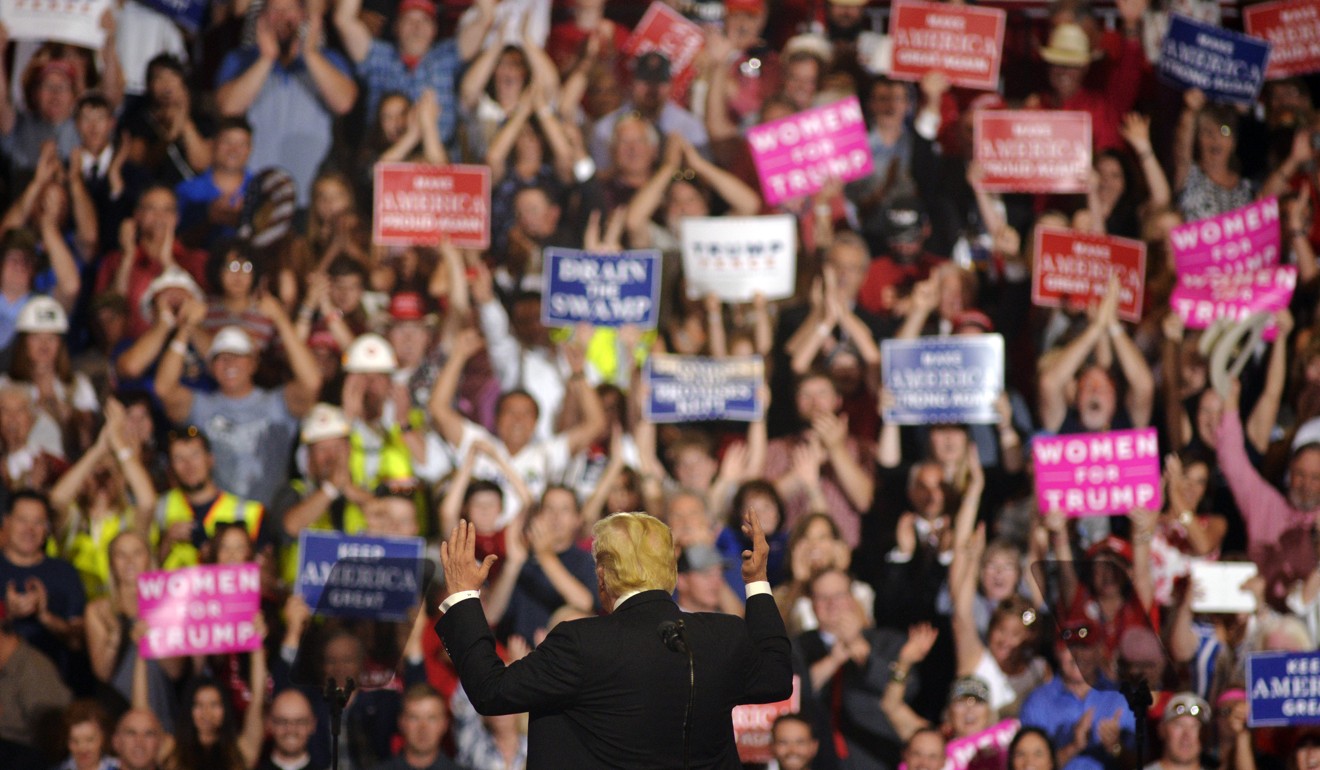
‘It makes you richer’, and four more defences of the liberal global order Trump voters need to hear
Marc Grossman says while Donald Trump and other populists attack international institutions, his opponents fall back on vague phrases like ‘rules-based’. Supporters of these institutions need to show how they improve lives, and explain them clearly

During almost three decades as a member of the US Foreign Service, I was privileged to play a modest role in nurturing what many call the “liberal rules-based international order”. Today, that order is under attack.
The words “liberal rules-based international order” mean nothing to 99 per cent of Americans. Indeed, this mantra is likely to be heard as an elite chant emerging from what President Donald Trump derides as the “swamp”.
The urgent challenge is to convince a larger audience that the international system the United States defends remains crucial to Americans’ wealth and power.

Most are better off thanks to US leadership of a globalising economy and multilateral international political system, but not all are. Millions around the world feel financially insecure and culturally neglected. They fear their countries’ best days are behind them – many voted for Brexit, Trump and Hungary’s authoritarian Prime Minister Viktor Orbán.
While supporters talk of complexity, nuance and interconnectedness, Trump talks directly to voters’ fears and anxieties. Speaking to the UN General Assembly in September, Trump said he wanted a world defined by “sovereignty, security and prosperity” – an order people who feel beleaguered can understand.
Ironically, Trump has shown limited capacity to implement that vision. When he attacks, then praises individual US allies, or denigrates then hails Nato before questioning the US commitment to collective defence, he creates whiplash, not support for US interests.
Trump is right to tell Nato allies to meet their commitment to spend 2 per cent of GDP on defence. But raising the ante to an unrealistic 4 per cent is either a sure loser or a strategy to end the most successful military alliance in history.
Trump’s approach to trade is similar. Vladimir Putin must be delighted with Trump’s description of the European Union as a “foe” on trade. Likewise, while Nafta needs revision, walking away would risk millions of American jobs based on trade and investment with Mexico and Canada.
There is a similar story when it comes to steel and auto tariffs: General Motors recently warned that tariffs on imported cars and parts could lead to US job losses.
In Asia, Trump is right to expect China’s support for a denuclearised North Korea and focus attention on Beijing’s unfair trade practices, energetic theft of intellectual property and militarisation of the South China Sea.
But the chances of getting the Chinese to pay serious attention to US interests will increase if Beijing faces a concerted effort by the US, its allies and friends. Instead, Trump abandoned the Trans-Pacific Partnership and has attacked Nato allies, plus Mexico, Japan and South Korea.
One reason he succeeds is supporters of the existing international order remain trapped defending words which generate little passion and entice no new followers. Those who believe America remains a powerful force for good in the world must make this case in new, more forceful ways.
Here are five “truths” to use in public:
- America’s global power and influence are good for Americans. Our economy grows and our country is safer when we have a strong military and diplomacy to keep and expand that power and influence.
- America is more powerful and prosperous when there are clear rules and we set them. How many Americans want to live in a world where China or Russia sets the rules – or there are no rules at all? That’s what happens when America leaves a leadership vacuum.
- America’s power and influence are multiplied when we work with other countries. We need like-minded allies to assume some of the burdens of global leadership and solve problems the US can’t manage alone. An isolated America is a less successful and secure America.
- America is better off having more democracies in the world rather than more autocrats and dictators. A world growing in freedom is a world where Americans can advance US interests and enjoy greater peace and prosperity.
- Americans are richer when America is the world leader in the global economic system. Estimates are that more than 41 million US jobs are connected to trade with other nations. American workers are not afraid of competition, so long as it is fair and provides benefits to all.
There are disadvantages to this new pitch. Some US allies who helped establish today’s order and benefited from it probably won’t welcome any change in emphasis in the rules. But with the stakes so high, these allies and friends must accept more explicit talk of patriotism and national self-interest from those who oppose Trumpism.
They must also recognise that they can do much more to promote the West’s common security interests and acknowledge that there need to be changes and new processes in the international system.
A global struggle is under way to define the future of relations among nation-states. On one side is an anger-driven, fearful nationalism. On the other is an aspiration for an evolving international system based on what The Economist describes as “America’s unique willingness to lead by fusing power and legitimacy”.
The result of this battle of ideas will, in the end, produce some new form of international system or at least loosely defined ways for nations to interact.
If we hope to bequeath the benefits of US global power and influence to future generations, the support of the American people is required.
Those who support US global leadership must adopt more direct, convincing ways to talk about how the US-designed international system promotes and protects America’s interests.
Americans need to rally behind the idea that US global leadership is essential to their prosperity and way of life.
Ambassador Marc Grossman is a vice-chairman of The Cohen Group. A US Foreign Service Officer for 29 years, he retired in 2005 as undersecretary of state for political affairs. The author wishes to thank Kate Fernandez, Tom West, Teddy Wessel, and Dave Rank for their support producing this essay. Reprinted with permission from YaleGlobal Online http://yaleglobal.yale.edu